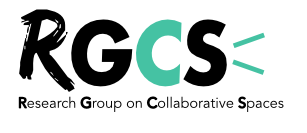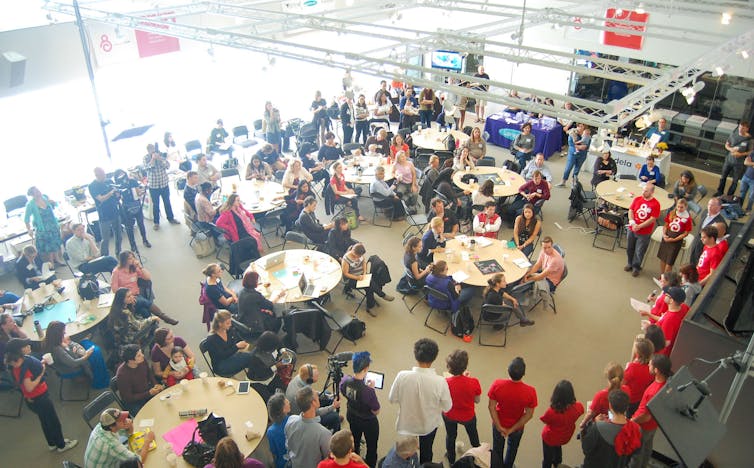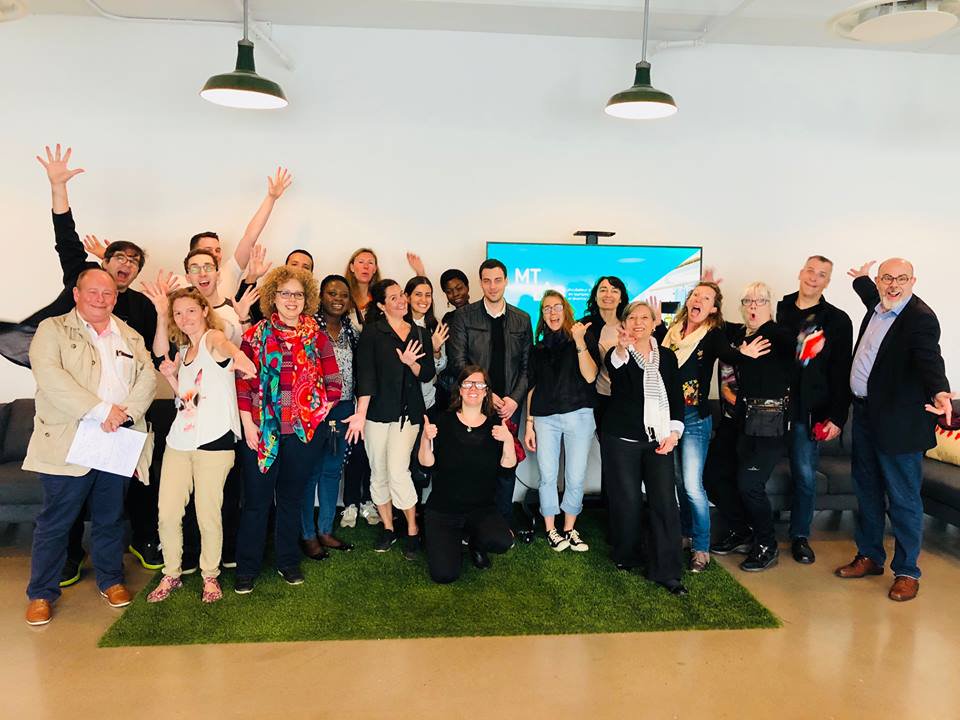By Renée Zachariou
The promise was enticing, and the menu quite mysterious: OWEE (Open Walked Event-based Experimentations) is a research protocol conducted by international researchers. After several experiments all over the world (in Tokyo and London), a tour in the 13th district of Paris was concocted, open to all. It is difficult to give a precise definition of OWEE without giving in to tautology: it is an experiment, while walking, while seeking. You’re welcome.
For this day dedicated to Street Art, we meet at 9 am on a gray Thursday in front of the square Luis Say (founder of Beghin-Say and, fun fact, brother of the liberal economist Jean-Baptiste Say), at the exit of the metro Glacière. Facing us, three facades completely covered with murals. On the left, a delicately rendered cat from the French artist C215, in front, a « freedom-equality-fraternity » muse in the iconic Obey style, on … Read more


